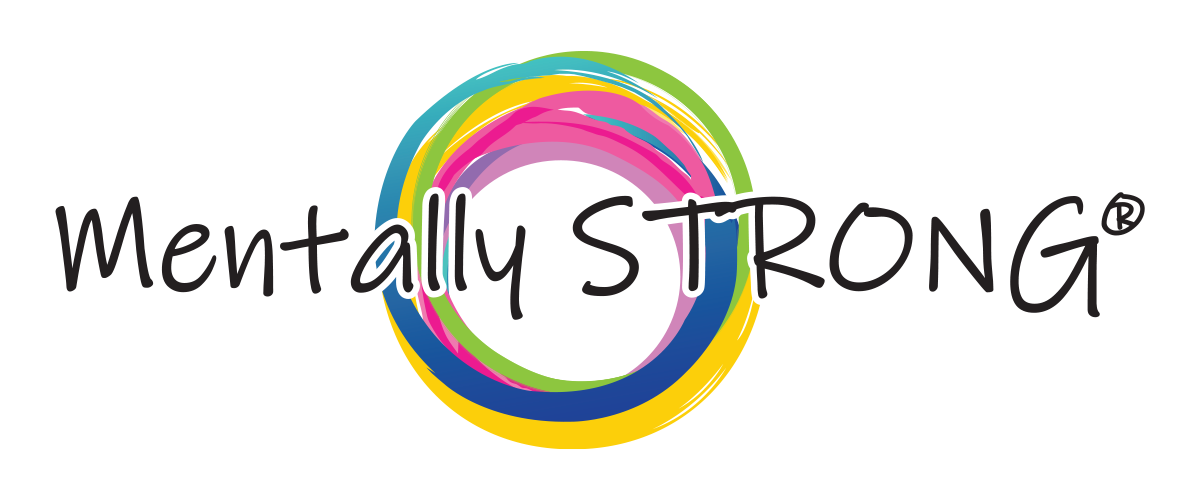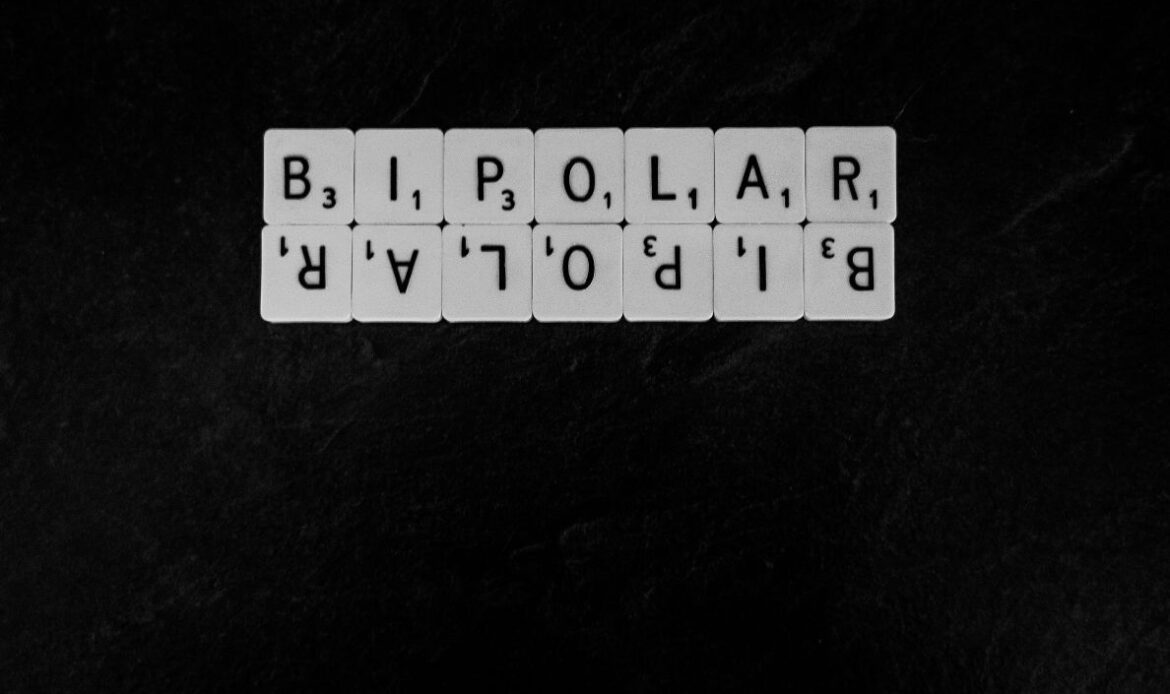What Is Bipolar Disorder?
Bipolar disorder isn’t just mood swings or “having a bad day.” It’s a mental health condition characterized by significant shifts in mood, energy, and activity levels that can impact daily life. There are two primary types of bipolar disorder: Bipolar I and Bipolar II.
Bipolar I involves manic episodes, which are intense periods of elevated mood, excessive energy, and heightened activity that can severely impact a person’s life. During a manic episode, someone may feel invincible, have racing thoughts, and take on unrealistic projects or engage in risky behaviors—such as excessive spending, reckless driving, or hypersexuality—that they wouldn’t consider in a more stable state. Manic episodes are not just about feeling “too happy”; they often involve a loss of control over actions and decisions. This loss of control is why these episodes can lead to serious consequences, including the need for hospitalization to ensure safety.
Bipolar II is more about hypomania, which is a milder form of mania that doesn’t typically require hospitalization but still involves a noticeable change in behavior and mood. Hypomanic episodes can feel like bursts of productivity and creativity, but they can still disrupt one’s life and need careful management. In both cases, the depressive episodes can be profoundly debilitating, characterized by deep sadness, lack of energy, and an overwhelming sense of hopelessness.
One common misconception is that individuals with bipolar disorder are always aware of their behavior or can easily control their actions. The reality is far more nuanced. For instance, someone in a manic state may not recognize that their thoughts are racing or that their plans are unrealistic until they come back down to a more balanced state. Similarly, during depressive episodes, the ability to see things clearly can be clouded by negative self-talk and hopelessness.
How Bipolar Disorder Affects Thought Patterns
For someone with bipolar disorder, thoughts can change drastically depending on whether they’re experiencing a manic, hypomanic, depressive, or mixed episode. Each of these states can bring its own unique set of cognitive challenges.
Thinking During Manic Episodes
During a manic episode, thoughts often race uncontrollably. This can feel like a flood of ideas, one after another, where everything seems possible and every idea feels like it has to be acted upon immediately. People often describe experiencing impulsive decision-making during these times, driven by a sense of invincibility. They might think, “I don’t need sleep; I have so much to do,” or “This business idea is foolproof!” The heightened state of grandiosity can lead to unrealistic plans, from starting multiple new projects to making significant financial decisions without considering the risks. The challenge here isn’t just the behavior; it’s the deep belief in the moment that these actions are entirely rational.
Thinking During Depressive Episodes
When in a depressive episode, the landscape of thoughts shifts dramatically. Here, self-doubt, guilt, and a sense of worthlessness can take over. Thoughts can spiral into a loop of negativity, such as “I’m not good enough” or “I’ll never get better.” It becomes hard to see beyond the current pain. Cognitive distortions like “all-or-nothing” thinking can make everything feel bleak, and there’s often a pervasive sense of hopelessness. This isn’t just sadness—it’s an intense emotional pain that clouds judgment and makes it difficult to feel motivated or hopeful.
Mixed Episodes: When Manic and Depressive Symptoms Collide
Mixed episodes can be some of the most confusing and challenging times for someone with bipolar disorder. Here, symptoms of both mania and depression are present. It’s possible to feel agitated and restless while simultaneously feeling hopeless or deeply sad. This can create a state of inner turmoil where neither extreme feels manageable. It’s critical to recognize these patterns and understand that they require a different approach to treatment and support.
For Individuals with Bipolar Disorder: Understanding Your Thought Patterns

Living with bipolar disorder means navigating a mind that doesn’t always follow a predictable path. There are days when thoughts feel clear and focused, and then there are moments when everything feels muddled and overwhelming. It’s not about “fixing” yourself but rather about learning how to recognize these shifts and understanding how they impact your decisions, relationships, and self-perception. Remember, knowing how a person with bipolar thinks is not just for others to understand—it’s also a journey of self-awareness for you.
Recognizing and Managing Cognitive Distortions
Cognitive distortions—those sneaky, negative thoughts that distort reality—are common during depressive episodes. Thoughts like “I’m a failure,” “Nobody cares about me,” or “I will never succeed” can feel overwhelmingly true, but they aren’t. Recognizing these patterns is the first step. Challenge these thoughts by asking yourself, “Is this thought based on facts, or is it just a feeling?” By gently questioning these distortions, you can begin to reshape your thinking toward a more balanced perspective.
Strategies for Improving Concentration and Memory
Manic or depressive episodes can affect concentration and memory, making it challenging to stay organized or remember important details. You’re not alone in this experience. I often suggest practical tools, such as keeping a journal, setting reminders, or breaking tasks into smaller, manageable steps. These strategies can help you regain a sense of control and reduce the frustration that comes with forgetfulness or distraction.
Tools for Better Decision-Making and Reducing Impulsivity
Manic and hypomanic states can sometimes lead to impulsive decisions—be it financial, relational, or even lifestyle choices. It’s important to create space between impulse and action. One strategy is the “pause and reflect” method: if you feel the urge to make a quick decision, pause. Give yourself time—sometimes just a few minutes—to consider the consequences. Ask, “Is this something I’ll be happy about tomorrow, next week, or next year?” This simple step can be a powerful tool in managing impulsivity.
Building Emotional Resilience and Coping with Stress
Stress is a significant trigger for mood episodes in bipolar disorder. Building emotional resilience means finding what works best for you to manage and cope with stress. For some, it might be mindfulness or meditation; for others, physical activity, creative outlets, or deep breathing exercises might help. It’s essential to explore and discover what helps you maintain your emotional equilibrium. And remember, resilience doesn’t mean you won’t face tough days—it means you have the strength to navigate them when they come.
For Loved Ones: Supporting Someone with Bipolar Disorder
Being a support system for someone with bipolar disorder is not without its challenges. You’re not only navigating their mood swings and thought patterns but also managing your emotions and well-being. It’s okay to feel overwhelmed, and it’s crucial to know that your support matters greatly. Just as your loved one is learning to navigate their inner world, you are learning to be a compassionate, supportive presence in their journey.
How Bipolar Disorder Impacts Relationships
Relationships with someone with bipolar disorder can be unpredictable. The highs of mania can bring about intense closeness and creativity, while the lows of depression can feel like an emotional withdrawal. It’s important to remember that these fluctuations are not about you; they are part of the disorder. Communicating openly about what each of you needs during these times is key. Saying things like, “I’m here for you, but I also need to take care of myself” creates a space where both of you can feel seen and respected.
Understanding Mood Swings and Effective Communication
Mood swings can be difficult to anticipate and even harder to manage. It’s essential to approach conversations with patience and openness. Instead of saying, “You’re acting differently,” try expressing how their behavior impacts you: “I’ve noticed you seem more stressed lately; is there anything I can do to support you?” This approach helps create a dialogue rather than a confrontation.
Setting Boundaries and Providing Support
Loving someone with bipolar disorder doesn’t mean you have to lose yourself in their care. Setting healthy boundaries is vital—for both of you. It’s okay to say, “I need some time for myself right now” or “I want to support you, but I can’t do it all.” Being clear about what you can and cannot offer ensures that you both have the emotional space to thrive. The Mentally STRONG Method can help you develop the resilience and inner strength needed to set these boundaries with compassion, ensuring that you’re strong enough to support those around you while also caring for yourself.
Recognizing Warning Signs of Manic or Depressive Episodes
Recognizing the warning signs of manic or depressive episodes in someone with bipolar disorder is crucial for early intervention and support. These signs can vary significantly from person to person, but some common indicators can help loved ones stay vigilant and prepared.
During a manic episode, you might notice an increase in energy, rapid speech, impulsive decisions, or even a sense of invincibility. It’s not just being “in a good mood”—it’s a shift that feels markedly different from their usual self. Conversely, depressive episodes can bring about feelings of hopelessness, withdrawal from loved ones, and a loss of interest in activities that usually bring joy. By understanding these signs, you can offer timely support, which could make a significant difference in managing the situation.
How to Approach Conversations About Their Thinking Patterns
When discussing someone’s thought patterns, especially during manic or depressive episodes, it’s essential to approach the conversation with sensitivity and understanding. Start from a place of curiosity rather than judgment. You could say something like, “I noticed you’ve been more withdrawn lately—do you want to talk about what’s been on your mind?” This approach opens the door to a conversation without making the person feel attacked or defensive.
It’s also crucial to recognize that these conversations can be difficult. Bipolar disorder can affect how a person perceives their reality, and sometimes, they may not see their behavior as problematic. Approach these moments with empathy, making it clear that you’re there to listen and support, not to criticize or control.
Encouraging Professional Help and Medication Compliance

Encouraging professional help is an act of care, not control. If someone you love is struggling with their mental health, suggesting they see a therapist, psychiatrist, or counselor is a way of showing that you care about their well-being. Medication compliance is another critical area. Sometimes, individuals with bipolar disorder may feel tempted to stop taking their medication, especially if they start feeling better or dislike the side effects. Gentle reminders about the importance of staying on their treatment plan can help, as can offering to accompany them to appointments or help manage their medication schedule.
At the Mentally STRONG Clinic, we stress the importance of coordinated care, combining therapy with medication management to create a comprehensive approach to treatment. This kind of support can be pivotal in helping someone navigate their mental health journey effectively.
Creating a Supportive Environment Without Overstepping
On one hand, you want to be there for your loved one, but on the other hand, you don’t want to smother them or make them feel incapable. It’s important to offer help and encouragement while still respecting their autonomy and decision-making power.
Think of yourself as a safety net rather than a crutch. Be there to catch them when they fall but allow them the space to make their own choices and mistakes. Small gestures, like asking them how you can support them or simply checking in regularly, can go a long way in fostering a supportive yet non-intrusive environment.
Insight and Self-Awareness in Bipolar Disorder
Understanding one’s mental state is not always straightforward for those with bipolar disorder. Insight and self-awareness play a significant role in managing this condition, but they can be challenging to develop, especially during episodes of mania or depression. This journey requires patience, persistence, and the willingness to face some difficult truths about how the disorder impacts thoughts, feelings, and behaviors.
Do Individuals with Bipolar Disorder Recognize Their States?
The question of whether individuals with bipolar disorder recognize their states—whether manic, depressive, or mixed—is not a simple yes or no. Some people are very aware of the shifts in their mood and thought patterns, noticing the subtle signs of an impending episode. They might sense the onset of mania through heightened energy, racing thoughts, or an urge to engage in risky behaviors. Alternatively, they might recognize the signs of depression creeping in through feelings of deep sadness, fatigue, or disconnection.
However, insight can fluctuate. During an episode, especially a manic one, self-awareness can diminish. The person may feel on top of the world, convinced that their ideas and actions are perfectly rational. It’s not until later—after the episode has passed—that they may realize their behavior was out of character or even damaging. This can be a difficult realization, often accompanied by shame, regret, or confusion.
Understanding the Challenges of Self-Awareness During Episodes
Self-awareness is particularly challenging during manic or depressive episodes because the disorder itself can cloud judgment and perception. Mania, for example, can lead to a sense of invincibility or grandiosity, where the person feels they are making great choices—even when those choices might be harmful or risky. They might not see their actions as problematic or may believe they are justified, making it difficult for them to accept feedback or concern from others.
Depression, on the other hand, can distort thinking in a different way. It can make someone feel as if their negative thoughts are facts—that they are unworthy, unloved, or incapable. These distorted beliefs can make it incredibly hard for the individual to reach out for help or recognize their need for support. The challenge, therefore, lies in gently guiding them to see these patterns without overwhelming them with judgment or unsolicited advice.
How Loved Ones Can Help Enhance Insight
As a loved one, you play a critical role in helping someone with bipolar disorder enhance their insight. This doesn’t mean forcing them to see things your way, but rather, helping them gently reflect on their experiences. You might say, “I noticed that last time when you were feeling this way, X happened. Do you think that might be happening again?” This allows them to think critically about their experiences without feeling attacked or misunderstood.
Offering consistent, compassionate support and being a calm presence during turbulent times can help. Sometimes, keeping a mood diary together can be a helpful tool—it allows the person with bipolar disorder to look back and identify patterns that might not have been clear in the moment. Encouraging therapy, where professionals can help them develop deeper insight, is also essential. And remember, this journey takes time. Celebrate small wins together and stay patient as they navigate their path to better self-awareness.
Shared Strategies: Coping Together

Living with bipolar disorder isn’t just an individual journey—it’s something that affects everyone around you. And while this can feel like a heavy burden, there are ways to share it, lighten it, and walk this path together. When both the person with bipolar disorder and their loved ones understand what they’re dealing with and take active steps together, it becomes more than just managing a condition—it becomes a partnership in healing and growth.
Building Healthy Routines That Support Stability
Creating a steady routine can be a game-changer when it comes to managing bipolar disorder. Regular sleep, nutritious meals, daily exercise, and structured activities aren’t just good habits; they’re anchors that help ground someone amidst the highs and lows. Think of it as building a solid foundation—one that supports you during those inevitable waves of mood changes.
For loved ones, getting involved in these routines can create a sense of normalcy and connection. It’s not just about encouraging the person with bipolar disorder to maintain consistency; it’s about being part of it. Sharing daily walks, planning meals, or setting a regular time to check in emotionally can make a world of difference. These small, steady acts of support build a framework where everyone feels safer, more connected, and less overwhelmed by the unpredictability of bipolar disorder.
Exploring Therapy and Support Groups
Therapy isn’t only for the person living with bipolar disorder—it’s also for their loved ones who are walking alongside them. Family therapy or couples counseling can be a safe space to openly discuss fears, frustrations, and hopes. Therapy is about creating bridges where there might have been walls, learning to speak each other’s languages, and finding new ways to be there for one another.
If therapy feels overwhelming or isn’t the right step for you at this moment, that’s okay. There are other ways to build strength and understanding. The Mentally STRONG Method course offers a gentle approach to help you navigate your thoughts and emotions, develop healthier coping strategies, and find resilience within yourself. It’s an opportunity to explore personal growth at your own pace, with tools that can support you in managing your relationships and emotions.
Support groups can also provide that much-needed sense of community. For both the individual and their family, knowing that others are on similar journeys can be incredibly reassuring. You hear stories that sound like your own, and it makes you feel less alone. Whether it’s learning new coping strategies or just feeling understood, these spaces remind you that there is a network of support beyond your immediate circle.
Practicing Self-Care for Both Individuals with Bipolar and Their Loved Ones
Self-care isn’t just something you do when things are calm—it’s something to hold onto especially when things feel overwhelming. For someone living with bipolar disorder, this might mean finding ways to stay present through mindfulness, writing down thoughts to help process them, or engaging in creative activities that bring joy and release. It’s about knowing what soothes your soul when the world feels too loud.
But let’s not forget: loved ones need self-care too. It’s easy to feel like you always need to be strong or “on” for the person you care about, but it’s okay to step back and care for yourself. It’s not selfish; it’s necessary. Whether that means taking time for a hobby, seeking your own counseling, or just having a quiet moment with a book, remember that your well-being is crucial. Caring for yourself means you’re in a better place to offer the support, patience, and love that your loved one needs.
Remember, this is a journey best taken together. By committing to understanding, empathy, and healthy practices, both individuals and their loved ones can create a nurturing environment where healing and connection are always possible.
Moving Forward: Building Understanding and Compassion
The journey of managing bipolar disorder, whether for the individual or their loved ones, isn’t a straightforward one. It requires patience, understanding, and a whole lot of compassion. It’s not just about managing symptoms but nurturing relationships and fostering an environment where everyone feels heard, valued, and supported.
The Importance of Patience and Empathy
When someone is navigating the ups and downs of bipolar disorder, patience becomes your greatest ally. It means sitting through the hard days without judgment, offering a hand when they stumble, and understanding that healing is not linear.
Empathy, on the other hand, is about truly trying to understand what the other person is feeling—whether it’s the person with bipolar disorder or their loved ones. It’s recognizing the exhaustion that comes from trying to stay stable, or the fear and confusion that a loved one might feel when they don’t understand why things are changing. When we lead with empathy, we start to bridge the gap between misunderstanding and genuine connection.
But empathy isn’t just about feeling; it’s also about action. It’s about saying, “I see you, I hear you, and I’m here with you,” even when it’s hard. When we practice patience and empathy, we create a safe space where healing, growth, and understanding can truly flourish.
Celebrating Progress and Small Wins Together
Every step forward, no matter how small, is a victory worth celebrating. Managing bipolar disorder is no small feat, and every day that someone chooses to fight for their stability, their peace, and their joy is a day worth acknowledging. It could be a week of consistent sleep, a difficult conversation without escalation, or recognizing a trigger before it leads to an episode—these are all wins.
Celebrating these moments together strengthens bonds and reinforces the idea that progress is possible. It’s a reminder that while the path might be rocky, there are moments of light and hope scattered throughout. For loved ones, this could mean offering words of encouragement, planning a small celebration, or simply acknowledging the effort being put in.
Remember, progress isn’t always measured by leaps but often by small, consistent steps. And every one of those steps is a testament to resilience, courage, and commitment. Keep celebrating those small wins—because, collectively, they lead to big changes.
If you or your loved one needs more structured support on this journey, consider scheduling an appointment at our clinic. At Mentally STRONG, we provide a compassionate space to explore your challenges, build resilience, and celebrate every bit of progress along the way. We’re here to help you navigate this path with the tools and support that are right for you.

